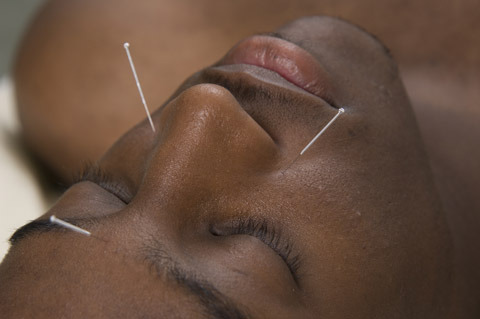Almost every new patient of mine expresses surprise during their acupuncture treatment when they first experience the new sensation of de-qi. De-qi, which can be roughly translated to “obtaining the qi” or “arriving at the qi” often manifests as a heaviness or numbness, a soreness or achiness similar to a slight cramp. Sometimes it presents as warmth or slight redness or more dramatically as s sensation travelling down the leg or up the arm in an invisible path from the needle.
Some express great curiosity at this strange new awareness of activity “bustling up and down the leg” as one patient put it while others come to relish the feeling during each treatment. Others are not so keen and I have built a relationship with each and every one of them to establish how strong or light a sensation of de-qi they can handle or need. Some people’s bodies are stronger and more sensitive and feel de-qi quite well, others require a bit more of manual manipulation from me.
Acupuncture in its simplest terms is the insertion of a needle to an acupoint, but I believe the therapeutic effects of acupuncture do not occur if there is no de-qi. There is debate in some quarters to as to whether de-qi is necessary to a treatment with some saying you don’t need to feel it every time.
Traditional Chinese Medicine and acupuncture is a complex system and there are symptoms and treatment plans where de-qi or even manipulation is not appropriate. However if it’s not contraindicated I will attempt to have my patient experience de-qi every single time, and if I can get each of my patients to feel the sensation of de-qi for a short while longer even when the needles have been removed then that is even better.
An article published in the Chinese Journal of Integrative Medicine reports that de-qi, not psychological factors, determines the therapeutic efficacy of acupuncture treatment for primary dysmenorrhoea (painful periods). The writers concluded that:
“Compared with the psychological factors, De-qi contributed more to the pain-relieving effect of acupuncture in subjects with primary dysmenorrhea. Moreover, manual manipulation is a prerequisite for eliciting and enhancing the De-qi sensations, and De-qi is critical for achieving therapeutic effects.”
This particular study focussed on women with primary dysmenorrhoea but it shouldn’t be taken to mean that de-qi isn’t important if you’re having acupuncture treatment for another condition. Talk to your practitioner, discuss with her what that feeling in your leg, or abdomen is like. Let her know if you feel discomfort (de-qi while not painful can seem strange or uncomfortable for some, especially if it’s strong).
Reference:
Xiong, J. et al “De-qi, not psychological factors, determines the therapeutic efficacy of acupuncture treatment for primary dysmenorrhea” Chin J Integr Med 2011.
Photo credit: BAcC
You might also like:

Pingback: Five days of acupuncture | The Happy Acupuncturist
Pingback: Five misconceptions about acupuncture | The Happy Acupuncturist